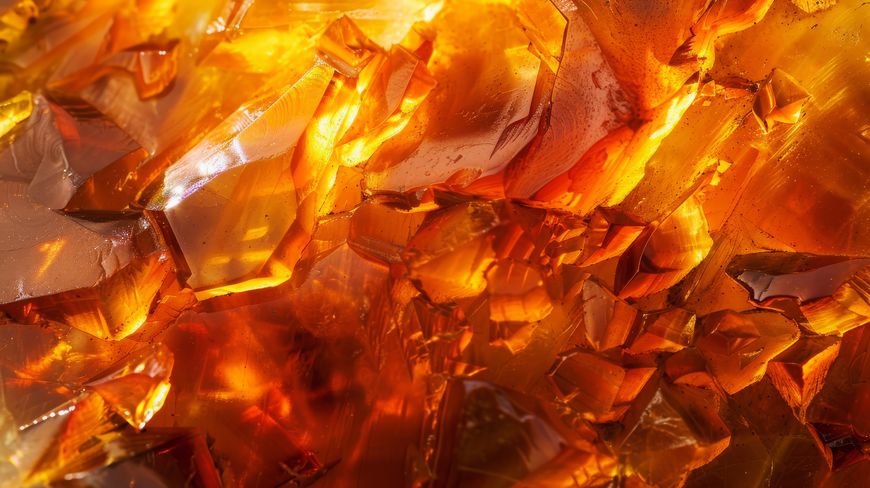
Amber, a natural fossilized resin, has captivated civilizations for thousands of years. Its warm, golden hue and natural beauty have given it a special place in many cultures, including the Islamic world. For Muslims, amber is not only a beautiful gem used in jewelry and prayer beads, but it also holds spiritual and symbolic meanings that resonate deeply within Islamic beliefs. This article explores the significance of amber in Islamic culture, from ancient times to its modern use in jewelry.
Spiritual Symbolism of Amber in Islam
Islamic culture often views natural elements as symbols of divine beauty and power, and amber is no exception. Amber is seen as a gift from Allah due to its natural origins and the unique way it forms over millions of years. As a fossilized resin, amber represents patience, endurance, and the passage of time — virtues that are central to Islamic teachings.
One of the most significant aspects of amber is its connection to light. The Prophet Muhammad (peace be upon him) emphasized the importance of light in both a spiritual and physical sense. Amber, with its glowing, translucent appearance, is often linked to noor (divine light), which represents guidance, wisdom, and truth in Islamic culture.
Additionally, amber’s natural ability to attract small particles when rubbed is seen as a metaphor for attracting good energy or blessings. Just as amber draws objects to it, Muslims believe that engaging in good deeds, prayers, and maintaining a pure heart will draw blessings from Allah.
Amber in Islamic Prayer Beads (Misbaha)
One of the most prominent uses of amber in Islamic culture is in the crafting of prayer beads. The misbaha is a string of beads used to count the recitations of Allah's name, prayers, or phrases like Subhan Allah (Glory be to Allah), Alhamdulillah (Praise be to Allah), and Allahu Akbar (Allah is the Greatest). Typically, a misbaha consists of 33 or 99 beads, which correspond to the 99 names of Allah.
Amber beads have been prized for their smooth texture and natural fragrance, which are said to enhance the meditative experience of dhikr. Many Muslims choose amber prayer beads not only for their beauty but also because they believe the material brings them closer to the divine. Amber, in this context, becomes a tool for reflection, mindfulness, and spiritual connection with Allah.
Historically, amber beads were often passed down through generations as family heirlooms, symbolizing both spiritual wealth and worldly beauty. Today, many Muslims continue to seek out amber misbaha for personal use or as meaningful gifts.
Amber in Islamic Art and Interior Design
Amber plays a significant role in Islamic art, souvenirs, and interior design, especially through amber paintings and decorative items. Its warm, golden glow adds a luxurious and spiritual touch to homes and sacred spaces.
Amber Paintings
Amber paintings showcase the resin's natural beauty, often featuring religious motifs like Arabic calligraphy or Quranic verses. The golden tones of amber reflect light uniquely, enhancing the visual and spiritual impact in homes and mosques.
Amber Souvenirs
Amber is also popular in Islamic-themed souvenirs, from small carvings of religious symbols to intricate decorative items, often gifted during religious events like Eid or pilgrimages.
Amber in Interiors
In home décor, amber is used in lamps, panels, and furniture, creating a warm and peaceful ambiance. Amber lamps, in particular, provide a soft glow, making spaces feel serene and spiritually uplifting.
Amber Jewelry in Modern Islamic Culture
In modern times, amber has transcended its traditional use in prayer beads to become a popular material in Islamic jewelry. Amber necklaces, rings, and bracelets are now commonly worn by both men and women, often as a symbol of their faith or connection to nature.
Amber’s warm, natural colors make it an ideal material for Islamic jewelry, especially for pieces that are designed to reflect modesty and elegance. Islamic jewelry artisans often incorporate Arabic calligraphy, verses from the Quran, or the Shahada (the Islamic declaration of faith) into amber pieces, blending religious symbolism with the beauty of the stone.
In many Islamic societies, amber jewelry is also valued for its protective qualities. Some believe that wearing amber can ward off negative energy or protect the wearer from harm. This belief harks back to ancient Islamic medicinal traditions, where amber was ground into powders or oils to treat ailments, ranging from digestive issues to protection against evil spirits.
Amber as a Symbol of Nature’s Blessings
Islam places a strong emphasis on the importance of nature and the belief that all elements in the natural world are signs of Allah’s creation. Amber, being a natural substance, aligns with this philosophy. The Quran frequently mentions the beauty of Allah's creations, encouraging Muslims to reflect on the signs of nature as reminders of divine power and wisdom.
Amber’s origins from ancient trees symbolize the connection between past and present, reminding Muslims of the transient nature of life and the eternal nature of the soul. For this reason, amber is sometimes considered a stone that fosters contemplation of one’s mortality and relationship with the Creator.
Healing and Medicinal Uses of Amber
Protection from Evil and Negative Energies
Amber has traditionally been regarded as a stone that offers protection from the "evil eye" (al-‘ayn) and harmful spiritual forces. Some people in Islamic communities wear amber jewelry or carry amber stones as a talisman to ward off negativity and ill intentions. Amber's ability to attract static electricity is also metaphorically linked to drawing in positive energy while repelling the negative.
Medicinal Uses in Ancient Islamic Medicine
Islamic healers in medieval times often prescribed amber for ailments related to the nervous system and respiratory health. It was commonly ground into powder or oil and used in treatments for a variety of conditions, including asthma, arthritis, and digestive issues. These uses, although rooted in ancient practices, continue to influence the belief in amber's healing potential.
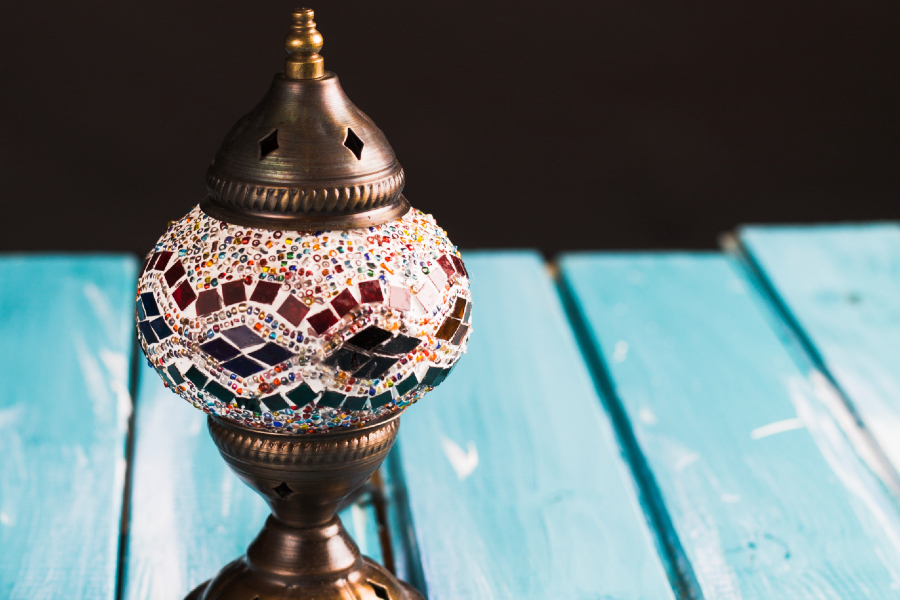
In conclusion, the symbolism of amber in Islamic culture is deep and multifaceted. From its historical role in spiritual practices to its modern use in Islamic jewelry, amber serves as a reminder of the beauty of Allah's creation and the enduring values of faith, patience, and light.
.jpg)

.png)
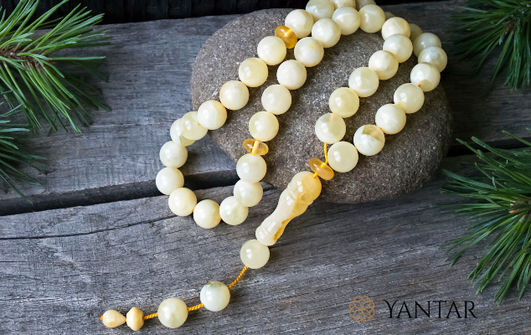
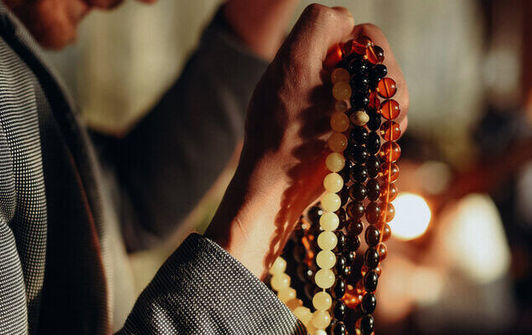
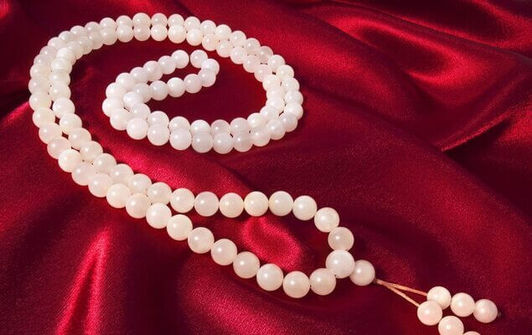

 Jewelry
Jewelry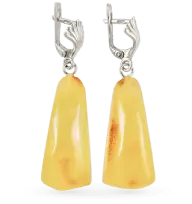 Silver amber jewelry
Silver amber jewelry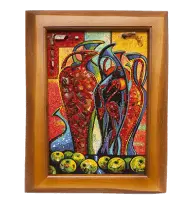 Amber pictures
Amber pictures Souvenirs
Souvenirs